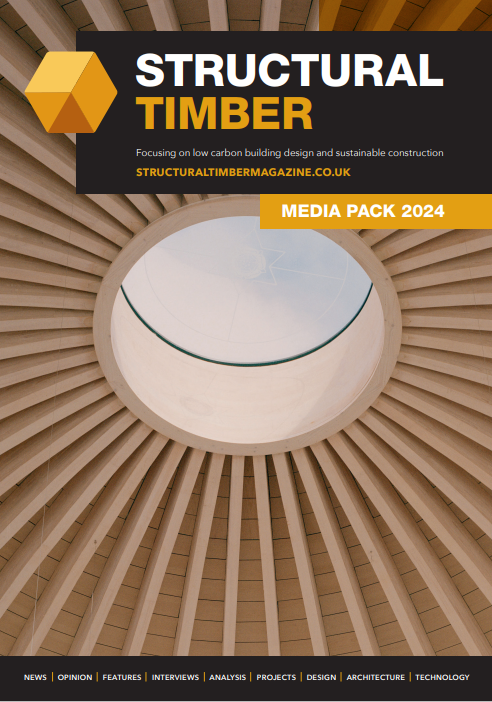Timber Development UK launches new Sustainability Committee to supercharge timbers low carbon potential
Timber Development UK (TDUK) is setting out to improve on the strong sustainability record of the industry in recent years by launching a new cross-sector Sustainability Committee.
The Sustainability Committee will identify key sustainability issues that affect the specification of timber in construction and take actions to overcome them, whether developing information and guidance to cover these issues, or commissioning research.
Already several key themes have been identified as requiring investigation, with sub-committees proposed to be formed under the direction of the main committee, including:
• Embodied Carbon – Gaining a better understanding of how embodied carbon should be accounted for within lifecycle assessments (LCAs) and environmental product declarations (EPDs), and the background research and evidence to back-up the claims on timber.
• Circular Economy – How do we promote the use of timber in the circular economy, focusing on substitution of high embodied carbon materials, sustainable packaging solutions, and the circular products and services the industry needs to develop.
• Responsible Sourcing – Development of the Responsible Purchasing Policy to ensure all timber consumed in the UK is from verifiable legal and sustainable sources, to ensure we have a sustainable supply for the future.
Several other themes have also been identified from the membership questionnaire sent out to TDUK members in April 2021, including volatile organic compounds (VOCs), biophilic design and wellbeing, and timber and thermal mass.
The diverse range of expertise and backgrounds represented in the Sustainability Committee means they will be able to monitor the performance of all points of the supply chain; and position TDUK to better manage and improve the environmental profile of timber.
There are currently 15 members in the Sustainability Committee from the specifiers, academia, and wider timber industry professions, with current members including:
• Charlie Law (Chair) – TDUK Sustainability Director
• Xiao Ma – TTF Sustainability Manager
• Tabitha Binding – TDUK University and Regional Engagement Manager
• Clare Harrison – Project Director, Grosvenor Estates
• Sebastian Lomas - Head of Sustainability, Hopkins Architects
• Will Mawson – Director, Mawson Kerr Architects
• Kelly Harrison – Associate Director, Whitby Wood Structural Engineers
• Rachel Pattison – Associate, Price & Myers Consulting Engineers
• Graham Edgell – Group Procurement Director, Morgan Sindall
• Paul Philbin - Quality/Environmental Manager, B&K Structures
• Prof. Robert Hairstans – Director of the Centre for Advanced Timber Technology (CATT), New Model Institute for Technology and Engineering (NMITE) / Edinburgh Napier University
• Joan Bailey – Sales Manager, UPM
• Ewa Bazydlo – Environmental Manager, James Latham Timber
• Joe Walshe – Operations & Systems Manager, Hanson Plywood
• Genevieve Ding – Environmental Compliance Manager, Brooks Bros. Timber
TDUK Sustainability Director Charles Law said:
“We really want to encourage all TDUK members to support this new committee and contribute wherever they can, as it is a really exciting initiative which will lend greater insight, transparency, and alignment right across the timber supply chain.
“The experts we have gathered in this committee represent a potent force to create a positive difference in the global timber supply chain, with the UK both a major destination market for timber products and a hub of global expertise in building with wood.
“As a globally traded commodity and crucial building material, the timber industry holds the potential to allow us to overcome some of our most urgent global crises; whether you look to climate, biodiversity or elsewhere.
“Timber acts as a form of carbon capture and storage, sequestering 0.9 tonnes of carbon dioxide for every cubic metre of timber used in construction and locking this away in our structures for many decades, helping to turn our built environment towards combating climate change.
“The responsible sourcing of timber is also essential to international efforts to preserve and restore our natural environment, better supporting biodiversity, and the livelihoods of people who depend on our global forests.
“We need to ensure we make the very best use of this valuable resource, ensuring the timber we do have is used efficiently, lasts longer, and can be repurposed into other wood-based products at the end of its initial service life, ensuring a fully circular resource.
“I look forward to working with each of the members of this committee in coming months to advance the role and sustainable potential of timber.”













